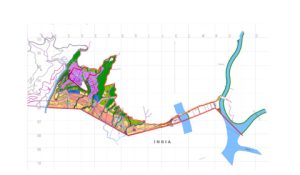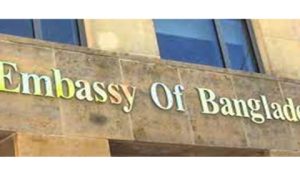Name: Promotion Clean Energy Development in Bhutan Renewable Master Plan (47275-001) TA-8630 BHU
Name of the Client: Asian Development Bank (ADB)
Project Description: To develop the renewal energy implementation guidelines, rules & regulations as per the provisions of the Alternate Renewable Energy Policy 2013, conduct resource mapping and prepare the renewable energy master plan and regulatory framework for the promotion of renewable energy projects, A total of 66 person-months service inputs will be required, among which 55 person-months from international consultants, 11 person-months from national consultants. The firm will be selected by using quality and cost based selection (QCBS) method. The outline terms of reference of the consulting firm.
Scope of work:
Renewable Energy Specialist
The Renewable energy specialist will be responsible for the quality and implementation of the assignments, providing the required support to Department of Renewable Energy (DRE) and reporting to ADB’s project officer. In particular, tasks of the renewable energy specialist are:
1. As team leader, coordinate with other team members to develop a detailed work plan and implementation schedule, work with DRE to oversee the consulting team and compile edit and ensure the quality of reports to be issued under the assignments.
2. Review the existing renewable regulatory and policy environment to assess the sector’s current status, objectives, and the medium and long term envisioned strategy.
3. Analyze the existing renewal resource database to assess the renewable potential for solar, wind, biomass and small hydro.
4. Review the existing constraints, which may affect the development of renewable resources.
5. Develop the framework for the preparation of master plan studies, which addresses the long term requirements of the country.
6. Develop a 15 years renewable resource master plan, consistent with the “National Strategy and Action plan for Low Carbon Development, 2012”, which would have medium term targets for development of various technologies.
7. Prepare a long term roadmap for the implementation of the renewable master plan identifying the key barriers to be overcome and key issues to be addressed.
8. Conduct a need assessment study to identify capacity building and training needs of renewable energy implementing agencies/sectors of Bhutan.
9. Formulate alternative Renewable energy Policy Implementation Rules and Regulations as per the provisions of the Alternate Renewable Energy Policy 2013.
10. Formulate conjunction with other specialists feed – in tariff framework for renewable energy technologies.
11. Initiate the institutional strengthening and preparatory studies to enhance energy generation from renewable energy sources like solar, wind, biomass, and small hydropower
12. Develop strategy for further scaling up and promotion of other renewable energy technologies like improved stoves, biogas, and solar thermal technologies to meet other non electricity energy requirements.
13. Prepare detailed proposal for renewable energy development fund (REDF) organization, staffing, funding and operating procedures, and administrative manual.
14. Formulate REDF management and operational Manual.
15. Establishment of Program Management Unit (PMU)
16. Organize in conjunction with other specialists, short term training, conference, workshops and meetings.
17. Present findings on how to prepare master plan, capacity building requirements, draft Alternative renewable Energy Policy Implementation rules and regulations to EA through seminar/conference in 2 to 3 high level consultation meetings.
18. The consultants shall transfer necessary knowledge, formats, models and spreadsheets to the DRE counterpart officials with all the project related data.
Environmental Specialist
1. Collect baseline data to assess environmental impacts, collected data must be gender disaggregated whenever applicable and appropriate
2. Conduct surveys/group discussion and interview with stakeholders and local people
3. Identify localized social and environmental benefits and negative impacts likely to result due to the project.
4. Based on the available information, the initial ESIA – feasibility will determine whether the impacts of the proposed project are likely to be significant and identify compensation and mitigation measures according to national and international standard.
5. Propose measures to mitigate negative impacts.
6. Conduct environmental analysis of each project including reconnaissance surveys to collect environmental baseline data needed at reconnaissance level and arrange for initial public workshop at district level. All data collected must be gender disaggregated when wherever applicable and appropriate. A part of the initial environmental analysis is to identify which international policies, (WB or ADB) are triggered by each project.
7. Contribute to the preparation of the feasibility studies of small hydro projects.
8. Transfer necessary knowledge, formats, models and spreadsheets to the DRE counterpart officials with all the project related data.
Social Specialist
1. Collect baseline data to assess social impacts. Collected data must be gender disaggregated whenever applicable and appropriate.
2. Conduct surveys/group discussion and interview with stakeholders and local people.
3. Identify localized social and environmental benefits and negative impacts likely to result due to the project
4. Based on the available information, the initial ESIA – feasibility will determine whether the impacts of the proposed project are likely to be significant and identify compensation and mitigation measures according to national and international standard.
5. Propose measures to mitigate negative impacts
6. Conduct Social analysis of each project including reconnaissance surveys to collect Social baseline data needed at reconnaissance level and arrange for initial public workshop at district level. All data collected must be gender disaggregated when wherever applicable and appropriate.
7. A part of the initial Social analysis is to identify which international policies, (WB or ADB) are triggered by each project.
8. Contribute the preparation of the feasibility studies of small hydro projects.
Transfer necessary knowledge to the DRE counterpart officials with all the project related data.

